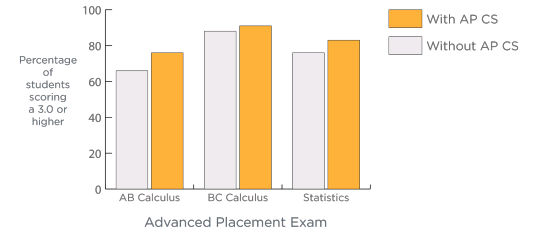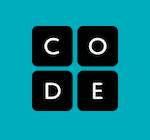| Teaching CS Improves Other Subject Performance |
| Written by Mike James | |||
| Wednesday, 05 August 2015 | |||
|
Does teaching Computer Science CS early enough have general benefits to students? A new study suggests yes, but if you read it in another way you might conclude no! The move to teach CS (Computer Science) as a core subject in K-12 public schools is something that people have strong feelings about. Some teachers hate the idea of raising a non-academic tradecraft to the same level as say Art or Social Studies. Even some programmers resist the introduction of CS into the school curriculum because they believe that the fiddly sort of coding they do couldn't possibly be of any benefit to students not going on to specialize in computing. There are so many reasons for rejecting the idea. Others can't really understand why computing and programming in particular ever got left out of the school timetable at any level. If you are a programmer who really understands what algorithmic thought is all about you can't doubt that learning to program, in a very general context, fosters a type of thinking that is essential in the modern world - in fact is essential in any world. Programming is about planning and executing solutions to problems - any problem. If you want more convincing, see The Trick Of The Mind - Programming & Algorithmic Thought It is also fairly obvious that learning to program must have a spin off in other areas of life and other academic disciplines. Code.org, Hadi and Ali Partovi's educational initiative backed by some of the best known names in tech, (see Zuckerberg, Gates And More Promoting Computing In Schools for the background) is working to get CS accepted as a core subject in K-12 public schools and needs some evidence that the hunch is correct. It asked CollegeBoard, a not-for-profit with the intent of expanding access to higher education, to look into the data and see what it revealed. CollegeBoard's preliminary report looks at the way taking AP Computer Science affected the outcomes of SAT Mathematics, AP Calculus and Statistics. The researchers found that SAT Math scores were up by 130 to 150 points in a simple model that compared the performance of students who had taken AP CS compared to those who didn't. However, when other factors were included - such as gender, ethnicity and previous score on PSAT (verbal, math, writing) - the effect of taking AP CS dropped to between 17 and 35 points. This means that other factors determining SAT Math performance were also determining whether students took AP CS. However, the results were significant and a 20-point increase isn't to be ignored. Looking at other AP Math exam results also demonstrated that taking AP CS resulted in increases in grades on Calculus and Statistics. With the same additional explanatory factors included in the model, the gains were small but significant: In each of the models, the coefficient on AP Computer Science is positive and statistically significant at conventional levels, indicating a positive relationship between taking this exam and subsequent performance in other related AP subjects.
So that's a conclusive result, or at least a strongly suggestive result. However, a paragraph in the preliminary paper seem to give the anti-CS lobby some hope. It is well known that correlation doesn't imply causation because the observed correlation could be caused by another variable that determines both of the correlated variables. If only girls did the AP CS exam and only girls did well at Math SAT, then taking the CS exam would be highly correlated with getting a good result, but because gender determined both. It is common practice for statisticians to include a comment in any report to remind readers that correlation does not imply causation, but the CollegeBoard report goes a tiny bit further: "As in the case of the linear regression models above, these results cannot be interpreted as causal. Although they suggest a relationship between AP CS coursetaking and subsequent AP success, it is again highly likely that there are additional confounding factors omitted from the model." The words in bold go seem to make a strong suggestion that there could be such factors. This has been taken to mean that there are indeed confounding factors by anyone wanting to argue against CS and so render the study worthless. Code.org have a clearer view of the result: "According to College Board data, students who take the AP Computer Science exam earn higher AP Calculus and Statistics scores relative to peers who previously performed at a similar level in math. " It also reports other studies that show improvements in other skills. If you are following the argument for teaching code it will be obvious to you that the biggest differences would be expected in students who did poorly on math and other STEM subjects and this is something that hasn't been addressed by the current crop of studies.
More InformationIs learning computer science linked to improved learning in other subjects? Related ArticlesThe Trick Of The Mind - Programming & Algorithmic Thought What Influences Women To Pursue Computer Science President Obama Experiences An Hour of Code Hour of Code Aims to Reach 100 Million Worldwide Five Reasons To Teach Kids To Code Teach Code In School - Before It's Too Late! Zuckerberg, Gates And More Promoting Computing In Schools UK To Teach Programming Starting At Age 5
To be informed about new articles on I Programmer, install the I Programmer Toolbar, subscribe to the RSS feed, follow us on, Twitter, Facebook, Google+ or Linkedin, or sign up for our weekly newsletter.
Comments
or email your comment to: comments@i-programmer.info
|
|||
| Last Updated ( Tuesday, 01 September 2015 ) |



